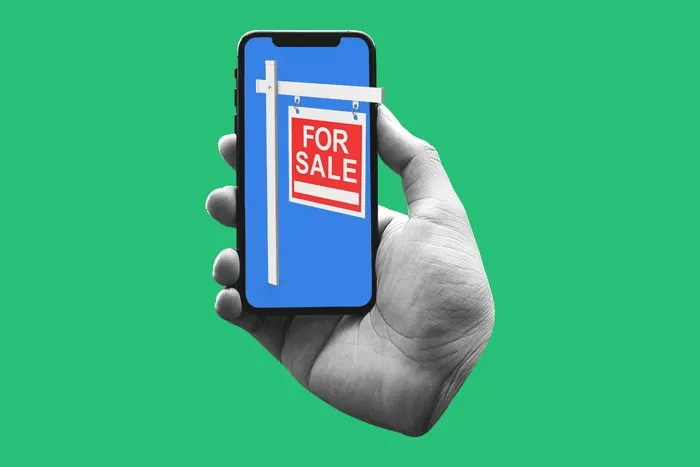Zillow Gone Wild is the gift that keeps on giving for the brand
The social media account turned TV series has resulted in increased brand affinity and social engagement, a Zillow exec said.

Anna Kim
• 5 min read
Affiliate marketing has grown up. The new report from impact.com breaks down the five pillars of partner sophistication, shows how top teams measure creator performance with precision, and explains what actually drives revenue beyond the first click. Read the report.
Zillow Gone Wild is, indeed, going wild.
The cross-platform social media account, which highlights some of the weirdest and most extravagant home listings on the real-estate platform Zillow (like this castle in Southlake, Texas, or this AI-looking house in Victoria, British Columbia), has accumulated an audience of nearly 5 million across social media and its newsletter. Now, it’s also a TV show on HGTV and Max.
Samir Mezrahi, a former BuzzFeed social media director who created Zillow Gone Wild on Instagram in 2020, said that even though he made the account without any official ties to Zillow, he began receiving positive messages from its employees almost immediately.
“You never know which brands are cool and nice or fun, or immediate cease and desist,” Mezrahi told us. “Zillow was really cool about things.”
Beverly Jackson, VP of brand product marketing at Zillow, told us that the company has opted to embrace the account and its use of Zillow’s marks and logo, instead of fighting it. It’s been a net positive for the company, she said, and has led to greater brand affinity. In addition to driving traffic to listings, Mezrahi noted that Zillow Gone Wild has even led to some home sales, while also creating brand partnership opportunities for him.
“I feel like it’s positive all around,” he said.
Hands-off approach
When Zillow Gone Wild first took off, Zillow’s marketing and social team kept an eye on it from afar and “began to see the beloved nature of the way fans were engaging with the account,” Jackson said. As it’s grown, she said it has “continued to be this very organic, unique way of allowing consumers and users and social media fans” to engage with Zillow.
Zillow Gone Wild has “allowed Zillow to be on the tips of people’s tongues and in the cultural zeitgeist,” she said.
For the most part, Mezrahi said Zillow has remained relatively hands-off, with communications limited to topics like the new show (of which Jackson said Zillow is not officially involved). Every now and then, Jackson said Zillow’s social accounts will comment on Zillow Gone Wild posts, but it intentionally keeps public engagement to a minimum.
“When your brand’s engaging in organic cultural moments, it is oftentimes best to get out of the way,” Jackson said, adding that it can feel “imposing” to be too involved. For that reason, she said, Zillow opts to act more like a fan than a collaborator.
“Not getting involved actually allows the audience to have an experience without the heavy-handedness of overt marketing,” she said.
Safety first
That’s not to say Zillow has been entirely removed from Zillow Gone Wild, and Jackson said she would be “remiss if [she] didn’t say that there were concerns” initially over brand safety with the account’s use of the brand’s logo and name.
To address those concerns, the company worked with Mezrahi to authorize the use of its name on social via a limited license agreement, and, more recently, in the show, which is handled between Mezrahi and HGTV’s production company, via a brand name license.
Even though Zillow isn’t officially involved in the new series, it’s helping to promote it. Each week, Jackson said the company shares Zillow-created content featuring the show’s host, Jack McBrayer.
Since it premiered in May, Jackson said she’s been excited to see that the show is reaching Zillow’s core demographic of 18–54 year-olds, she said. Mezrahi, meanwhile, said he’s seen Zillow Gone Wild’s follower numbers increase on Fridays and Saturdays after new episodes are released, even without explicit mentions of the social account on the show.
“Hopefully it brings more audiences, more eyeballs, more brand deals, more attention to it,” he said.
Mezrahi has monetized Zillow Gone Wild through sponsorship deals with brands like Bud Light, Pop Tarts, and Royal Caribbean, as well as with franchises like The Bachelor. Jackson said that Zillow remains uninvolved, but Mezrahi told us he gives the brand a heads-up on the deals he makes “just as an FYI.”
Recently, Zillow had Mezrahi host an event for the LA Rams in which they converted a house in Hermosa Beach, California, into the NFL team’s 2024 draft house. Jackson said the company plans to continue to look for opportunities where it “makes sense to bring [Mezrahi] into work that [they’re] doing,” citing the Rams activation as one example because of the uniqueness of the house.
The benefits from Zillow Gone Wild (both the account and show) have “pushed [Zillow] to do things in social and be in places that are new” to the brand, Jackson said.
As the company expands its marketing efforts online and in real life, can the app’s users also expect to see an expanded offering, a comments section, which followers have clamored for on Zillow Gone Wild and on other sites for years?
“That’s probably the No. 1 question I get,” Jackson said. “And my response is: no comment.”
Get marketing news you'll actually want to read
Marketing Brew informs marketing pros of the latest on brand strategy, social media, and ad tech via our weekday newsletter, virtual events, marketing conferences, and digital guides.
